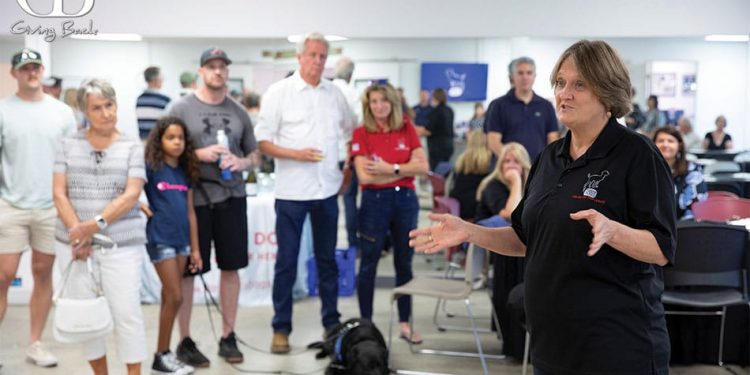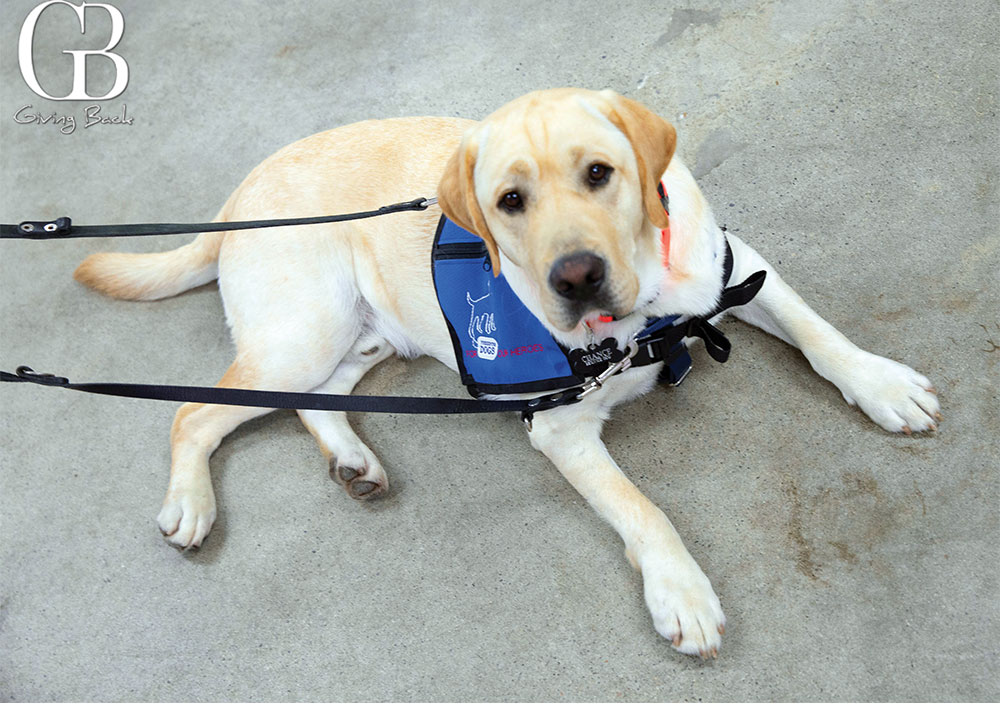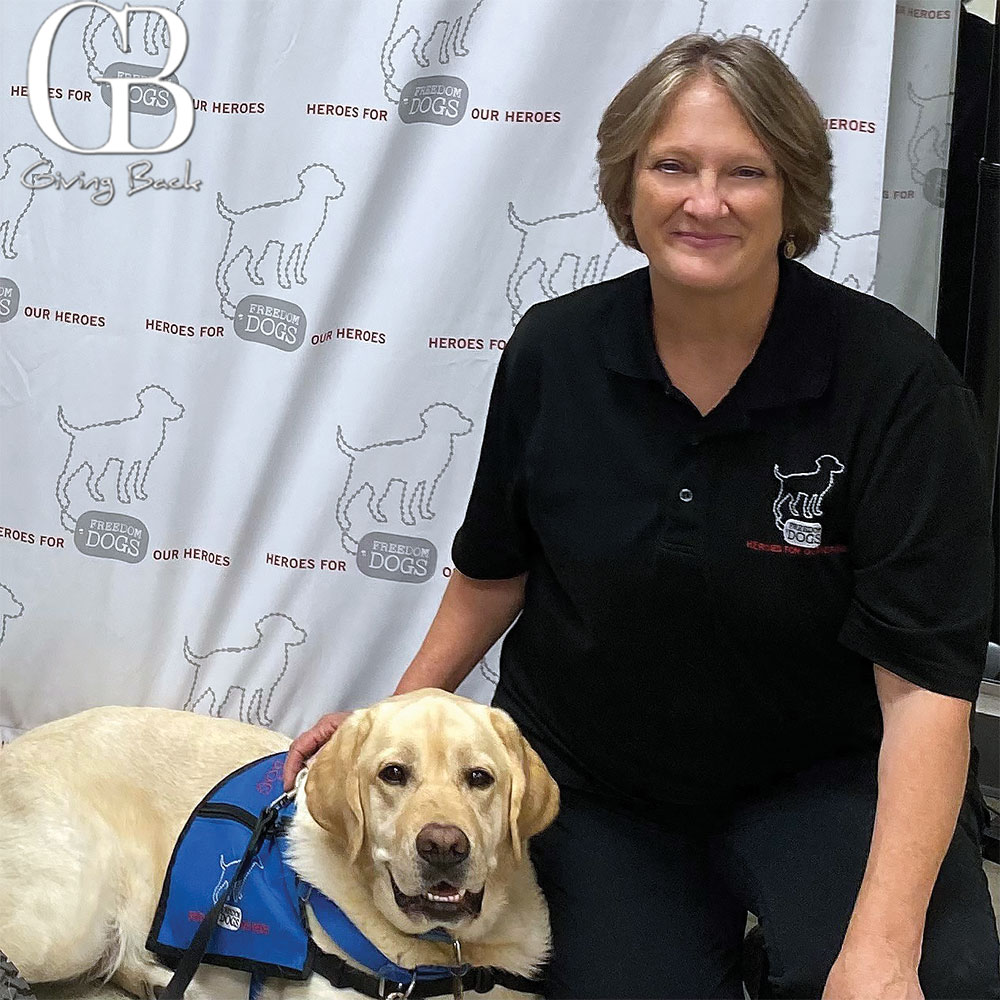On Your Last Day

Peggy Poore was that kind of bank teller; the one that smiles, makes eye contact, says “hello,” and finds common ground with the human on the other side of the glass. In 2010, a customer handed her a check and Peggy noticed two words that would change her life. “Freedom Dogs?” she asked. Peggy had been breeding Labrador Retrievers since 1988, so the word ‘dog’, caught her attention.
“Tell me more,” she said to the customer, who turned out to be Sharon Root, Freedom Dogs’ treasurer. Sharon told Peggy about Freedom Dogs, a San Diego-based 501(c)(3) nonprofit organization that uses trained service dogs to help active and veteran members of the military suffering from post-traumatic stress disorder and/or physical trauma to transition back to civilian life. “Dogs and the military… I fell in love immediately,” she shared. “I was all in.” Today, Peggy is the organization’s Lead Trainer. She currently has under her tutelage four members of the Wounded Warrior Battalion at Camp Pendleton; one veteran of the war in Afghanistan; and one Vietnam Veteran. Each is paired with a companion dog, and their individual trainers.
Starting at 8 weeks old, the Freedom Dogs live with their trainer and come to the Freedom Dogs Training Facility in Oceanside weekly to attend classes, where, in addition to basic training, the dogs are taught more specific skills, such as reminding their person to take their meds; waking them up and turning on the lights when they are having a nightmare; and remaining calmly by their person’s side, even when faced with unthinkable temptation such as fallen food or a passing squirrel.
After the dogs are trained, they are assigned to a hero. And for a two-year period, the dog and trainer accompany the hero in their daily life: to medical appointments, mental health appointments, to classes and wherever else the hero spends their time. Poore explains that the key is small steps. A trip to Target, for example, is too much stimulation, has too many loud noises, and too many people, for these traumatized individuals. “Oh, you don’t want to go in the doors. We will stay here in the parking lot. Next week, we might go a bit further.”
The unplanned benefit of this style training is nothing short of a miracle. By the time the two-year training period is over, the training itself, along with the love, support, and constant companionship of both dog and the trainer, has done the healing. An astonishing 65% of the heroes find that they do not need a full-time service dog when they graduate.
Peggy breaks into tears when she talks about the healing she has witnessed and been a part of. “I don’t think I willl ever be able to talk about this program without crying,” she shared with GB Magazine, and she is sure it was fate that brought her here. She recounts an audiobook she was listening to wherein the author asked listeners to think about what they would want to be doing if this were their last day. “This is what I would want to be doing on the last day of my life,” Poore says. “Exactly this.”
For more information about Freedom Dogs, visit their website at www.FreedomDogs.org.







